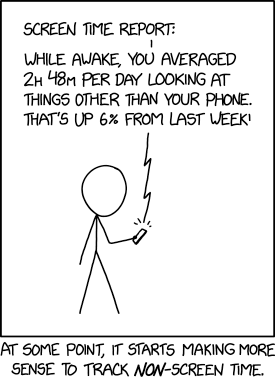I am a subscriber to the Harvard Business Review. I thought this article would be of great interest to this forum. You should be able to access the linked articles without a subscription–I hope.
From Maureen Hoch, Editor, HBR February 4, 2022
Studies have shown that 77% of us dip into our social media accounts during the workday — and what often starts as a quick impulse to check Instagram or TikTok can devolve into an hour-long scrolling session. Why is it so easy to fall down this rabbit hole? New research we published this week looks at the psychology behind our scrolling addiction.
The likelihood that you’ll keep scrolling comes down to three factors: the similarity, repetitiveness, and relatedness of the content you’re consuming. The researchers explain: “When something feels more accessible, it becomes easier to process, leading us to anticipate that we will enjoy it more. In other words, people choose to continue down the rabbit hole because viewing related media ‘feels right’ — even if it’s at odds with what they actually want to be doing, whether that’s getting work done or even just taking a break.” And, of course, social media platforms are designed to do just that — keep you engaged.
This research prompted me to revisit a favorite from our archive: how to keep push notifications from ruining your productivity. Cellphones are like having a slot machine in our pockets, the author writes, referring to the work of Tristan Harris, Google’s former design ethicist and founder of the Center for Humane Technology. “We can’t resist but take a spin every few minutes.”
Distractions aside, sometimes a little flexibility in how we spend our time is a good thing. Employees have made it clear they want flexibility in how, when, and where they work, and this piece offers ideas on how to offer flexibility without losing productivity.
I’ll close with a special bonus episode of our HBR IdeaCast podcast. In it, co-host Alison Beard asks Rasmus Hougaard, the CEO of Potential Project and an expert in mindfulness, to conduct a short meditation exercise designed to keep you focused on the present moment. Rasmus shares how mindfulness practices can benefit our work and our well-being. It’s a quick listen and I hope you’ll try it out. (Skeptics welcome!)

